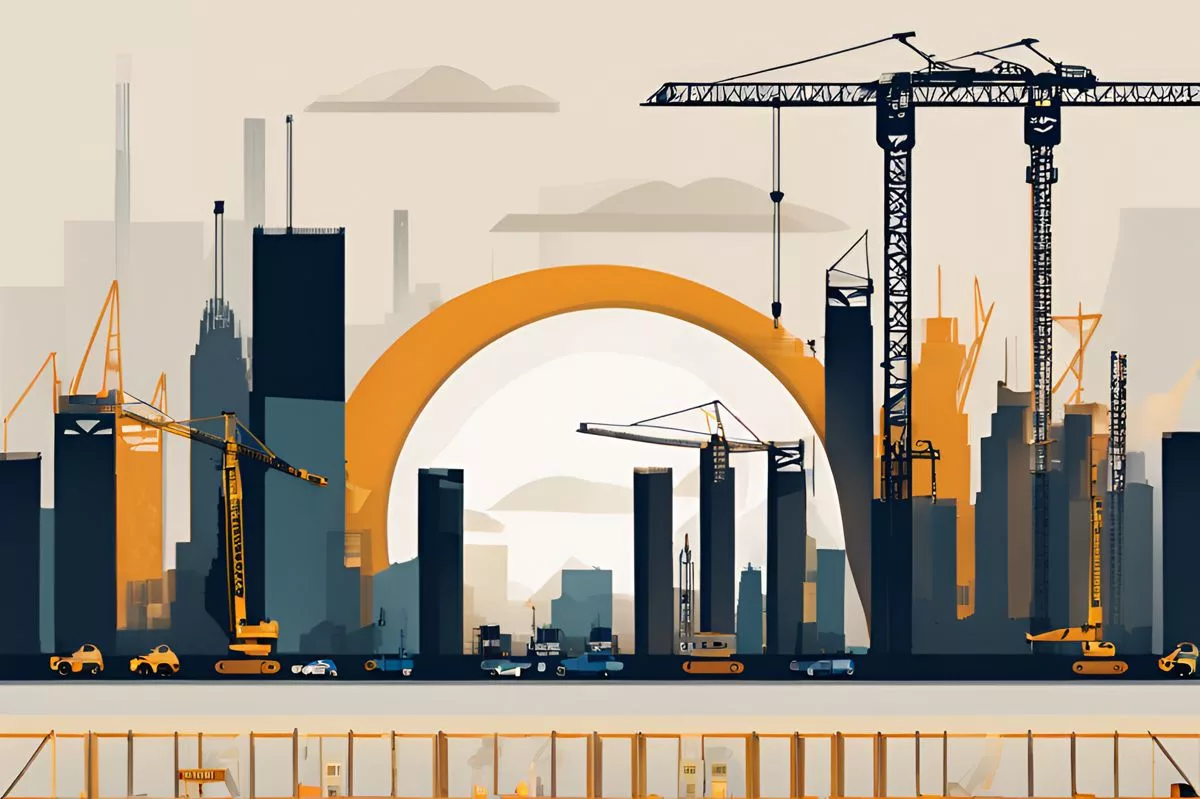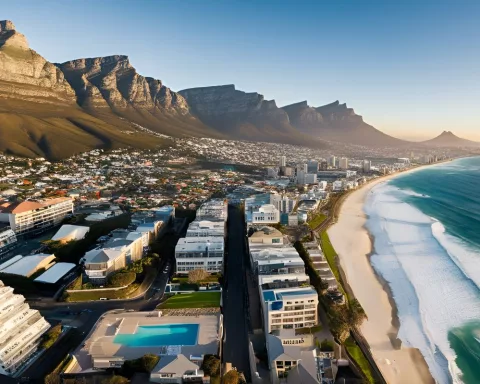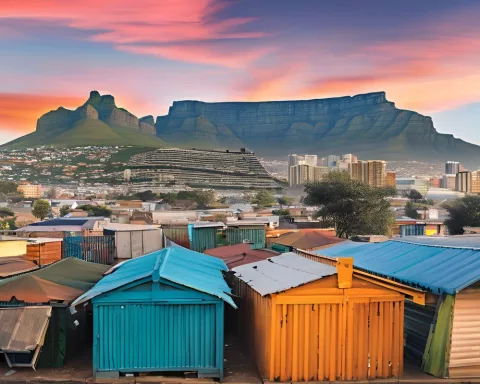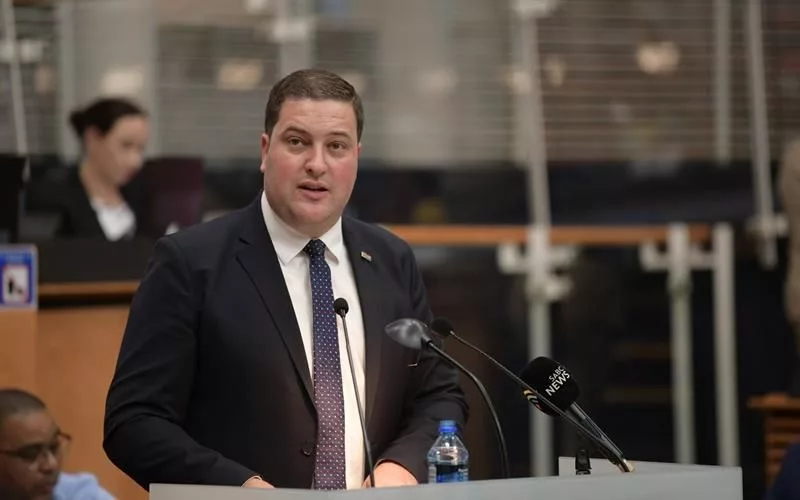Cape Town has proposed a R39.5 billion infrastructure investment blueprint, known as the Building for Jobs Budget, over three years to alleviate poverty and become Africa’s most business-friendly city. The budget includes plans for diverse projects, including upgrading informal settlements, providing low-income households with the highest free water allocation, and offering the widest qualifying criteria for a 100% rates rebate. The budget is a testament to the city’s commitment to democracy, with extensive comments and feedback from Capetonians contributing to its formation. The Building for Jobs Budget serves as a symbol of hope, reflecting the city’s determination to create a prosperous future for all.
What is Cape Town’s Building for Jobs Budget?
Cape Town’s Building for Jobs Budget is a R39.5 billion infrastructure investment blueprint over three years, aiming to alleviate poverty and position the city as the most business-friendly city in Africa. The budget involves diverse projects, ranging from sanitation to law enforcement resources, and includes significant upgrades to informal settlements worth R3.7 billion over three years. It also offers unmatched benefits to low-income households, such as the highest free water allocation and the widest qualifying criteria for a 100% rates rebate.
Cape Town: A City with Democratic Roots and a Bright Future
Recognized for its vibrant history rooted in democratic tradition, Cape Town, under the adept guidance of Executive Mayor Geordin Hill-Lewis, stands as a beacon of hope with ambitious strategies for its citizens’ betterment. The city’s political maturity is evident in the successful execution of 13 elections, free and transparent, reflecting its commitment to democracy. However, Cape Town’s dedication transcends politics, extending to the social development of its residents as seen in its monetary commitments.
The era marked with the termination of one-party supremacy has seen Hill-Lewis navigating Cape Town into prominence; as a city that functions effectively and cares sincerely for its inhabitants. This zealous commitment has recently culminated in the adoption of the Building for Jobs Budget 2024/25, a landmark infrastructure investment blueprint, with a primary objective to alleviate poverty and propel the city into a prosperous future.
A Record Infrastructure Investment Plan
The Building for Jobs Budget 2024/25 is the most significant budget ever proposed by a South African city, setting aside a substantial R39.5 billion for infrastructure enhancement over three years. Additionally, it outlined further infrastructure endeavors in a R120 billion 10-year plan, surpassing the combined investment of all three Gauteng metros.
The formation of this budget is a testament to the democratic participation of its citizens. It invited extensive comments and feedback from Capetonians, providing them with an opportunity to voice support for the projects they deemed essential within their communities. In response to their input, the city plans to invest in diverse areas, ranging from sanitation to law enforcement resources, all aimed at enhancing the daily lives of Cape Town citizens, particularly those from low-income households.
Addressing Infrastructure Needs and Essential Services
In the fiscal year 2024/25, the city aims to invest R12 billion, with 75% of which will directly benefit the low-income households. Among the multitude of projects to be undertaken, Cape Town plans to initiate South Africa’s largest bulk sewer upgrade on the Cape Flats and major expansions to wastewater treatment. It also anticipates to quadruple the rate of sewer pipe replacement to 100km per year, made viable through a monumental R620 million earmarked for sewer and water pipe replacements.
In terms of essential services, Cape Town is extending its efforts to secure water supply from new sources and reduce reliance on Eskom. To enhance the city’s safety, a new R160 million fund will be used to establish a joint policing center to consolidate crime-fighting operations and augment the power of law enforcement for criminal investigations.
For public transportation, the city is making significant progress to broaden the MyCiTi bus service link to communities in the city’s south-east, a multi-billion rand investment that pledges to transform public commuting. This initiative, along with improved parks, sports facilities, libraries, and safe spaces for the homeless, will contribute significantly to the creation of multi-dimensional communities.
An Unmatched Social Package and Commitment to the Poor
In addition to the concrete measures taken towards infrastructure advancement, the Building for Jobs Budget incorporates significant upgrades to informal settlements worth R3.7 billion over three years. This substantial commitment to low-income individuals is projected to generate approximately 130,000 construction-related jobs over the same period, contributing to further reducing Cape Town’s already laudable unemployment rate.
The budget’s social package offers unmatched benefits to low-income households. With the city’s property rates being the lowest among various other cities, its social package includes the highest free water allocation and the widest qualifying criteria for a 100% rates rebate, outperforming its counterparts.
Cape Town: A City of Hope for All
The Building for Jobs Budget serves as a model of good governance and a symbol of service culture. It reflects the city’s determination to end load shedding, improve public transport, clean the city and its waterways, and position Cape Town as the most business-friendly city in Africa.
Cape Town acknowledges its challenges and is readying to confront them, carrying its citizens along. It takes a staunch stand against extortion and metal theft, implementing strategies to safeguard its critical infrastructure.
In essence, through this budget, Cape Town has emerged as a beacon of hope, exemplifying the nation that South Africa aspires to be. The city’s ambitious investment in infrastructure is not just a sign of its commitment to growth, but also an indication of its trust in its people, representing a city that functions effectively and takes care of its residents, aligned with its long-term vision of being a ‘City of Hope for All.’
What is the Building for Jobs Budget?
The Building for Jobs Budget is a R39.5 billion infrastructure investment blueprint proposed by Cape Town over three years to alleviate poverty and become Africa’s most business-friendly city.
What are the benefits of the Building for Jobs Budget for low-income households?
The Building for Jobs Budget offers unmatched benefits to low-income households, including the highest free water allocation and the widest qualifying criteria for a 100% rates rebate.
What is the goal of the Building for Jobs Budget?
The goal of the Building for Jobs Budget is to alleviate poverty and position Cape Town as the most business-friendly city in Africa by investing in diverse projects ranging from sanitation to law enforcement resources.
How was the Building for Jobs Budget formed?
The Building for Jobs Budget was formed with extensive comments and feedback from Capetonians contributing to its formation, reflecting the city’s commitment to democracy.
What areas will the Building for Jobs Budget invest in?
The Building for Jobs Budget will invest in diverse areas, including upgrading informal settlements, providing low-income households with the highest free water allocation, and offering the widest qualifying criteria for a 100% rates rebate. It will also invest in sanitation, law enforcement resources, public transportation, and essential services.
What is Cape Town’s commitment to social development?
Cape Town is committed to social development with significant upgrades to informal settlements worth R3.7 billion over three years, projected to generate approximately 130,000 construction-related jobs. Additionally, the city’s property rates are the lowest among various other cities, and its social package includes the highest free water allocation and the widest qualifying criteria for a 100% rates rebate, outperforming its counterparts.












